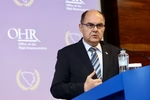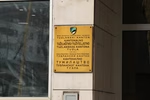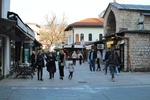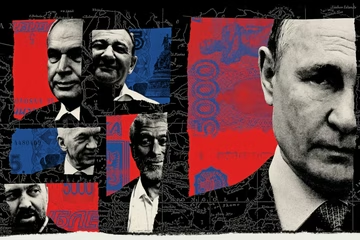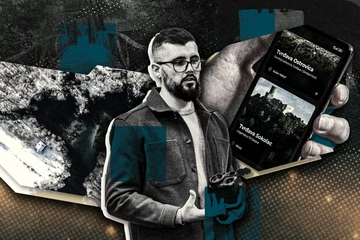
US Ambassador to BiH Michael Murphy spoke at the annual media forum "Balkan Media Assistance Program," and warned of the rising political pressure and threats to journalists in Bosnia, stating that "nowhere is this narrowing of the media space more visible" than in the Republika Srpska (RS) entity where the RS National Assembly recently adopted draft amendments to the Criminal Code of the RS, which would re-criminalize defamation.
Below is Ambassador Murphy’s full speech:
"
The United States supports freedom of speech, freedom of press, and independent media around the world. Sustainable, independent, balanced, and fact-based media is a cornerstone of prosperous, well-functioning democracies. So, let me get right to the point: The space for independent journalism is closing in Bosnia and Herzegovina and throughout the region. And it is closing fast. The Bosnian Journalist’s Association, BH Novinari, reported in March that political pressures and threats to journalists in Bosnia and Herzegovina increased by 40 percent in 2022 compared with the year before.
Nowhere is this closing space more evident than in BiH’s Republika Srpska, where the RS National Assembly recently adopted in the first reading draft amendments to the RS criminal code that would re-criminalize defamation. We understand that the RS National Assembly also plans to introduce legislation that would label as “foreign agents” all media and NGOs receiving international financial support. These repressive moves are straight out of the Kremlin’s playbook on how to dismantle democracy by silencing critics.
The amendments to criminalize defamation are based on highly subjective criteria, such as “insulting another person,” and they appear to have been written to be as flexible and difficult to regulate as possible. The law not only foresees criminal responsibility and potential jail time but calls for stiff fines of up to 120,000 Bosnian marks for a single offense. That is more than 100 times the average monthly salary in Bosnia and Herzegovina, an insurmountable amount for small, independent media outlets with tight bottom lines. By design, just one verdict will be enough to shut down many media outlets permanently.
It is not at all unreasonable to assume that the ruling coalition will use the amended criminal code to penalize their political enemies and silence the few independent media voices remaining in the Republika Srpska.
Proponents of the so-called NGO law claim it is meant to increase transparency. This is absurd. The truth is that the law is a thinly veiled attempt by the Republika Srpska ruling authorities to further suppress voices critical of it and its policies. When Russia expanded its foreign agent law – the same law that has inspired the Republika Spska legislation – media outlets and civil society organizations faced burdensome reporting and labeling requirements, exorbitant fines, and arbitrary police raids and inspections. The space for independent voices did not just narrow, it closed. And that is exactly what the Republika Srpska government wants to happen here.
Neither of these laws are about transparency or protecting people against harmful speech.
They are just the opposite. They are targeting you – all of you in this room and around the region who dedicate your lives to objectivity and transparency – because you expose truth, hold everyone accountable, and provide citizens with information that empowers them to participate in a democratic society. In fact, they are targeting citizens who simply have an opinion or view different from those in power. That is the very antithesis of democratic.
We are all aware that news outlets are under attack in the Federation, too, where journalists are routinely threatened, harassed, or sued for printing the truth. Although Federation politicians have not proposed specific legislation aimed at silencing their critics, some Federation politicians use every tool available to them in order to prevent journalists from exposing their corruption or other misdeed, or to punish journalists after they do so.
All of you in this room do your jobs every day in the face of immense political pressure, and unfortunately, increasing personal risk, threats, accusations of treason, and worse.
That is difficult and courageous in ways that few people appreciate. It would be understandable if you decided to give up, if you decided that the risks you are asked to take are not worth it. Yet, your work could not be more important, more consequential to the future of Bosnia and Herzegovina and to this region than it is right now. Two examples of the impact independent journalism has had in this region makes this clear.
It was investigative journalists from Bosnia and Herzegovina who uncovered irregularities in the Federation’s procurement of unusable ventilators from China during the COVID-19 pandemic, eventually leading to the first instance conviction of several top officials, including the Federation’s former prime minister. Similar COVID-related public procurement corruption schemes are also coming to light elsewhere in the region, thanks to media reports exposing officials who took advantage of a global crisis to get rich. In Serbia, the independent media has bravely shone a light on government official’s connections to the narco mafia, and on the mafia’s role in violently disrupting peaceful protesters who gathered recently in Belgrade.
This work is hard, and as I said, it is dangerous, but it is of paramount importance. That is why the United States has stood, and will continue to stand, right beside you. We are proud to support the BMAP Forward program – the reason we are all here today – which is empowering a network of independent media in the region. This program helps media outlets improve their business models and professionalize their operations; for example, by helping print outlets transition to online platforms and access state-of-the-art media technology. Our support helps outlets achieve financially sustainability so they can remain independent, expand their audiences, and keep up with a constantly changing media landscape. It also provides space for collaboration, including here at this forum, enabling outlets from across the region to work together to tackle the myriad challenges they face.
The United States also continues to support investigative journalism to ensure citizens have access to unbiased information about their government and society, especially when it comes to the pervasive corruption that impacts every aspect of their lives.
Investigating and reporting on corruption requires resources, time, and grit. We know you have no shortage of grit, but time and resources can be a challenge, especially in this environment of closing spaces. That is why, in addition to the BMAP Forward program, we provide support to journalists pursuing these investigative stories and legal assistance to journalists who are targeted by bogus lawsuits attempting to silence them.
The draft Republika Srska laws underscore how fast the space for independent voices can close, but they are also an indication of just how powerful your work is, how much it empowers citizens and disempowers corrupt, autocratic actors. I start every day analyzing the news, including your stories, and I deeply appreciate the difficult work you are doing for the people of Bosnia and Herzegovina and for the region so that they can understand what is happening here, and in the world around us. I was glad to see so many of the bylines I have come to trust and respect on today’s guest list.
As I have said to many of you personally, our eyes are open, and when you need us, our door is open too.
The United States will continue to support you, through our programs and through our advocacy, so you can continue to do this important work. I look forward to seeing the results of your collaboration over these critical issues that will take place here at this forum. But most importantly, I look forward to watching and supporting all of you as you bravely and steadfastly carry on in your fundamental role in sustaining and bolstering democracy for your fellow citizens."
Kakvo je tvoje mišljenje o ovome?
Učestvuj u diskusiji ili pročitaj komentare





 Srbija
Srbija
 Hrvatska
Hrvatska
 Slovenija
Slovenija












